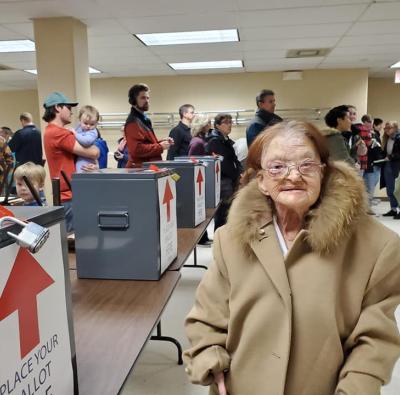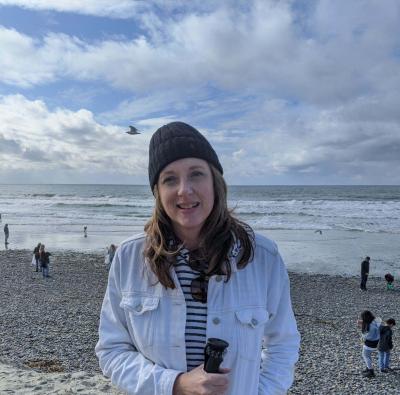Background
Under current North Dakota law, when an absentee ballot is submitted, local election officials must compare the signature the voter provided on their ballot envelope to the one on their absentee ballot application form. If the officials – who are untrained in signature analysis and provided with no meaningful guidance as to how to make these comparisons – determine the signatures do not “correspond,” the ballot is rejected and not counted. The voter who cast that ballot is not informed there is any issue with their signature or provided with a chance to verify their ballot and have their vote count.
Because signature evaluation is an unreliable, error-prone process for verifying ballots, North Dakota must provide voters with notice and an opportunity to fix ballot issues to ensure validly cast ballots are counted and mitigate the risk of disproportionately disenfranchising certain voters, including voters with disabilities and elderly voters. No two signatures – even from the same signer – are exactly alike. Factors such as age, disability, education, signing surface, and even type of pen can impact the consistency of a signature. With only two signature samples, it is very difficult to determine the identity of a signer, even for trained forensic handwriting experts. The unreliability of this process increases when the people evaluating voters’ signatures are not experts. In North Dakota, they are untrained and lack meaningful guidelines for how to conduct these assessments.
Under this system, certain populations of voters are at heightened risk of having their ballots rejected because of their signature variability, including voters with disabilities, elderly voters, very young voters, and voters for whom English is a second language. If the state fails to provide these voters with notice that there is an issue with their ballot and an opportunity to fix that issue, impacted voters who cast valid absentee ballots face certain disenfranchisement because of mistakes the state made.
Impact of COVID-19
North Dakotans have long relied on mail-in voting. In North Dakota’s 2014, 2016, and 2018 general elections, absentee ballots accounted for between a quarter and a third of all ballots cast.
In light of the COVID-19 pandemic, however, these numbers are certain to rise. On March 13, 2020, Governor Doug Burgum declared a state of emergency because of COVID-19. As part of a package of measures intended to mitigate the spread of the virus and keep North Dakotans safe, the Governor also issued an executive order waiving the requirement that counties maintain at least one in person polling place. As a result, many upcoming elections in North Dakota will be held exclusively by mail.
As more North Dakota voters rely on the state’s absentee ballot system to exercise their right to vote, more of them will be at risk of being disenfranchised because the state erroneously detects issues with their signatures.
Our Case
Campaign Legal Center (CLC) is representing Self-Advocacy Solutions (SAS), the League of Women Voters North Dakota (LWVND), and Maria Romo in a lawsuit seeking to ensure that North Dakota counts all validly cast absentee ballots.
Maria Fallon Romo is a para educator who works with special education students at a local elementary school. Although she usually votes in person, Ms. Romo attempted to cast her ballot by mail for the first time in 2018. Ms. Romo has multiple sclerosis, which makes standing and walking for long periods of time difficult. This makes voting by mail the most accessible option for her.
Unfortunately, after Ms. Romo cast her ballot, North Dakota determined that her signatures did not match and did not count her vote. She was never informed of this issue and had no opportunity to fix it before she was disenfranchised. Ms. Romo’s condition also impacts her fine motor skills and makes it difficult for her to write neatly or consistently. While she enjoyed the convenience of voting by mail, she is worried she will be disenfranchised again if she votes by mail in the future. In any event, in the upcoming mayoral election in her city, the election is being conducted entirely by mail in light of the coronavirus crisis.
About the Plaintiffs
SAS is a nonpartisan, nonprofit organization in Grand Forks, North Dakota that was created by and for people with disabilities. They work with their membership to ensure people with disabilities have their voices heard, including by exercising the right to vote.
LWVND is a nonpartisan, nonprofit organization with members across North Dakota. LWVND’s work is dedicated to protecting the right to vote for all eligible voters through advocacy, voter education, and providing direct assistance to voters.

